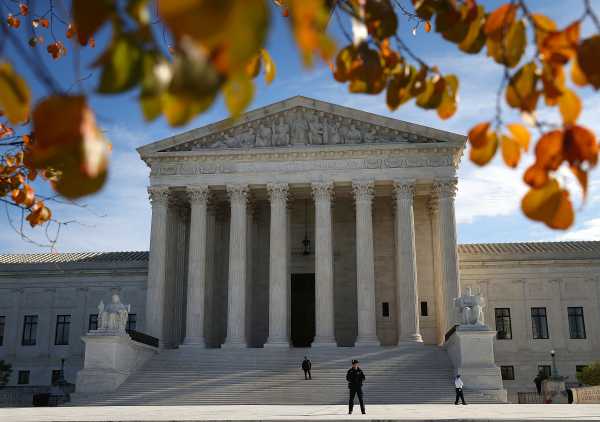
The Ninth Circuit Court of Appeals just upheld a ruling against the Trump administration’s efforts to end the Deferred Action for Childhood Arrivals (DACA) program, which protects some 600,000 unauthorized immigrants who came to the US as children from deportation and allows them to work legally in the United States.
The administration’s plan to end DACA has been on hold since January, when Judge William Alsup of the Northern District of California ruled that it had to continue allowing immigrants currently covered by the program to renew their two-year grants of protection. (Under the administration’s plan, DACA grants would have started to expire en masse on March 5, 2018.)
There are now three different rulings in three different circuits against the administration, all of which the administration is appealing. This is the first ruling at the appeals court level.
The Ninth Circuit ruling doesn’t change anything immediately. But it matters because it makes it all but certain that the Supreme Court will decide to take up DACA in spring 2019 — and with a five-justice conservative majority after the appointment of Brett Kavanaugh, it is entirely possible that the Supreme Court will overturn the Ninth Circuit’s ruling and allow Trump’s plans to end DACA to proceed.
The Trump administration has already asked the Supreme Court to take up the case — even before it had a ruling it could appeal
Under normal circumstances, the Department of Justice would be expected to appeal the Ninth Circuit’s ruling to the Supreme Court. The Supreme Court would consider that request and (presumably) ultimately decide to take up the case; if any other circuit courts had ruled on DACA by that time, the Supreme Court would probably roll the cases together.
The case would be scheduled for oral argument sometime in 2019, and a ruling would be expected before the end of the Supreme Court’s term in June 2019 (probably in mid- or late June, since the Supreme Court has a recent tradition of waiting until the end of the term to rule on its highest-profile cases).
All of that might still happen. But the timeline is a little weird — because the Trump administration has already asked the Supreme Court to take up the Ninth Circuit’s case on DACA, even before there was an actual ruling for the administration to appeal.
On Monday, the Department of Justice filed a request for the Supreme Court to consider all three of the cases against its efforts to end DACA, even though, at the time, none of the appeals courts in those cases had ruled. The DOJ argued, essentially, that the Ninth Circuit was slow-walking its decision, because it had held oral arguments on May 15 and hadn’t put a ruling out yet. So the Trump administration asked the Supreme Court to step in early.
The Trump administration had tried this move with the Supreme Court back in February — soon after the first ruling on DACA came down — and the Supreme Court dismissed it.
But the Court doesn’t need to endorse the Trump administration’s somewhat-radical tactics to take up the case. Even if it does end up granting the request that was filed Monday, it can justify it by saying that there is an actual appeals court ruling to consider.
The big question now is not if the Court will hear a DACA case this term, but when. The Court is holding conferences — the closed-door meetings in which the justices debate which cases to consider — for four of the next five Fridays, and then is taking the rest of December off.
A case won’t be considered in conference until the lawyers opposing the administration on DACA have filed their brief, asking the court to let the Ninth Circuit decision stand. They have 30 days to do that. Given that the longer they take, the longer DACA may last, they may take the whole 30 days.
So it’s unlikely that the Supreme Court will formally agree to hear the case before January 2019. That means it will probably be heard toward the end of the term, in April, and the ruling will almost certainly come out toward the end of June. But if any of these steps moves faster than expected, the Court may schedule oral arguments for earlier. Earlier arguments would give it the chance to issue a ruling before the late June rush of decisions, which would allow the Trump administration to pick up where it left off in sunsetting DACA.
Current DACA recipients probably have a few more months to renew their protections from deportation and work permits. But they may not have any longer than that.
Sourse: vox.com






